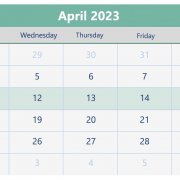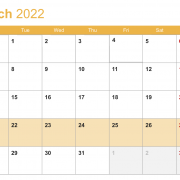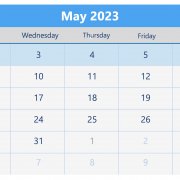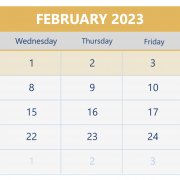Roche: how to run a big pharma like a startup (Breakfast-debate with Mr. Federico Plaza, Director of Corporate Affairs of Roche Farma Spain)
Roche: how to run a big pharma like a startup
Breakfast-debate with Mr. Federico Plaza, Director of Corporate Affairs of Roche Farma Spain

On April 27, 2022, a breakfast-debate was held at the Roland Berger headquarters in Madrid with Mr. Federico Plaza, Director of Corporate Affairs of Roche Farma Spain and Vice President of Farmaindustria. What follows is no more than a brief summary of the content of that breakfast.
A little history
Roche was founded in Switzerland by Fritz Hoffmann-La Roche in 1896, more than 125 years ago. It was born as a laboratory of individualized master formulas, but very soon it became a pioneer company in the development and industrial manufacture of chemically synthesized medicines to promote accessibility for all patients to medical advances.
The company is today at the forefront of personalized medicine thanks to its commitment to advanced therapies, precision diagnosis and data analysis sciences. This focus on personalized precision medicine has somehow brought Roche back to its roots, focusing on personalized treatment.
Another of the keys to Roche’s history is that, at the beginning of this century, it was able to combine the two company concepts that existed until then: that of the so-called big pharmas (based above all on the development of chemically synthesized drugs each directed of them to millions of patients, the well-known blockbusters) and biotechnological companies (which research and develop biological therapies, whose active ingredient is derived from organic substances).
Roche helped blur that difference with the 2009 acquisition of Genentech, a major US biotech company, in what was at the time the largest takeover by a Swiss company. Now all the big pharmaceutical companies are biopharmas.
Roche has continued to work in this line in recent years, having fully entered the 21st century in the development of new therapies based on molecular biology and the use of data analysis sciences through new big data tools and artificial intelligence.
The numbers of a giant
The numbers for Roche, the world’s largest biotech company, are staggering. Both divisions (Pharmaceutical and Diagnostics) showed the following figures in 2020:
- 800 million Swiss francs in sales.
- 900 million Swiss francs of net profit.
- 700 million francs invested in R&D, the highest figure in the entire industry, which represents 22% of turnover.
- 80 molecules in clinical development that cover a wide range of pathologies (oncology, hematology, neuroscience, ophthalmology, rare diseases, etc.), of which 70 are present in Spain.
A new company model
The digitization process, the progress in the personalization of treatments and the Covid pandemic have accelerated the transformation process in which the company was already immersed to anticipate the future and work to achieve solutions for the health problems of patients in the future. One of the keys to this transformation is the change in the business model, transcending the traditional role of companies as mere providers of medicines to a new role as an ally of the system when it comes to achieving comprehensive solutions to the demands of health systems and patients, in measurable terms in health outcomes.
Within this process Roche considers some significant strategic changes.
Main strategic changes
There are eight fundamental strategic changes that Roche is implementing globally and, specifically, in Spain, one of the countries where this transformation is most advanced:
1. Not having medical visit networks
Roche no longer has networks of medical representatives in Spain, with a single commercial vocation. It has replaced them with scientific networks, whose interaction with the health system is totally different, activating co-creation projects with clinicians and managers, in order to give more value to the treatment of patients and respond collaboratively to the challenges of health systems.
Consequently, Roche professionals no longer have sales incentives, but their variable depends on more qualitative indicators and always based on their ability to favor collaborative projects and solutions always based on science.
2. A much more horizontal structure
The traditional way of operating big pharma is through a heavy bureaucracy, with a very slow and hierarchical decision-making process. In this way, any decision had to go through different people and levels of the company before becoming a reality.
The new Roche is based on a much more horizontal structure, where all professionals are empowered to make decisions in their field, and where leaders are fewer and have a more inspiring and strategic role, going beyond the role of traditional leadership.
3. No local budget
Of course, the company works with a budget at the global and European level, but not at the country level. The situation based on local budgets and the need to make quarterly reports, as befits a listed company, meant that many resources were devoted to explaining what is done to the parent company. For this reason, around 30% of the effort was spent not so much on promoting new projects, but on preparing the entire quarterly reporting exercise.
This has changed and, since last year, the Spanish subsidiary no longer has a budget in the traditional format.
4. Agile methodology
Compared to the traditional model where a boss is in charge of assigning tasks to collaborators, telling them how to do them and waiting for a desired result, Roche has established the agile methodology, which gives employees autonomy when making decisions, encourages their initiative and stimulates their ability to propose new projects. The role of the hierarchical superior changes and goes from being a boss to a VACC leader: Visionary, Architect, Coach and Catalyst. It is a model that also truly puts the customer at the center through multifunctional and self-organized teams that work collaboratively.
5. Bet on R&D
In the last financial year, Roche spent 13.7 billion Swiss francs on R&D, 22% of turnover. All of Roche’s plans include reinforcing R&D-oriented resources, until this figure doubled, reaching 20,000 million Swiss francs in 2030. In Spain, Roche is a leader in biomedical R&D: it carries out more than 300 clinical trials every year in 180 hospitals in which more than 1,100 researchers and almost 15,000 patients participate.
6. OneRoche
Roche has two major business units: the Pharmaceutical Division (Roche Pharma) and the Diagnostics Division (Roche Diagnostics). Even within the Diagnostic Division, the Diabetes area (Roche Diabetes Care) was segregated. Although they will continue to be two separate business units, the advancement of personalized precision medicine brings diagnosis much closer to treatment and vice versa, which is why the company is working so that both divisions work closely in coordination to offer comprehensive solutions that bring together precision diagnosis, advanced therapies and data analysis.
7. From 3 to 5, 50% reduction in costs for the system
The company works with a strategic objective for this decade: to be able to provide three to five times more medical advances at a 50% lower cost for society. One of the keys to achieving this is to improve the efficiency of R&D thanks to the use of new digital and data management tools, which are already allowing a shortening of clinical research deadlines and the development of tools such as approvals conditions, which speed up the arrival of innovations on the market, which also allows a reduction in costs.
8. The data heals
Precisely for this is Data Analytics, which is not a Roche business area, but tries to strengthen collaboration with the system.
The new paradigm of personalized medicine will only be possible if it is based on the development of new tools for managing enormous amounts of clinical data (big data) and the real life of individuals (real word data) through artificial intelligence applications and machine learning. That is why the development of health data management tools (data analytics), both individually and in aggregate, will be one of the keys to the immediate future for Roche.
In short: invest better to be more productive
This is what Roche intends: to invest better in an increasingly efficient biomedical R&D process, which entails lower costs for the system and provides more value, measurable in health outcomes, both to patients and health systems.











